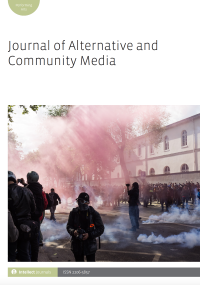
Full text loading...
 , Anja Wollenberg2
, Anja Wollenberg2 , Reda Fhelboom3
, Reda Fhelboom3
Local media that cater to their local communities are still rare in Arab countries due to government control and centralization of media production. In some transitional states, however, we observe a mushrooming of new local small media initiatives after regulation modes have changed. Yet, these media operate in often fragile states in which a sustainable development of autonomous media is difficult to achieve. In this study, we investigate how local media in Iraq and Libya unfolded and developed over the past decade(s) after regime change. We map the status quo and compare the proliferation of small local media in both countries against the backdrop of media capture and flawed media regulation – patterns that are typical for transitional states.

Article metrics loading...

Full text loading...
References


Data & Media loading...

Publication Date:
https://doi.org/10.1386/jacm_00109_1 Published content will be available immediately after check-out or when it is released in case of a pre-order. Please make sure to be logged in to see all available purchase options.